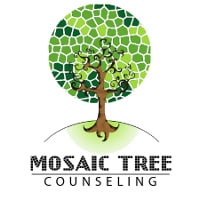Attention-Deficit Hyperactivity Disorder (ADHD
ADHD is a chronic condition including attention difficulty, hyperactivity, and impulsiveness. ADHD often begins in childhood and can persist into adulthood. It may contribute to low self-esteem, troubled relationships, and difficulty at school or work.

Symptoms include limited attention and hyperactivity. Behavioral: Aggression, excitability, fidgeting, hyperactivity, impulsivity, irritability, lack of restraint, or persistent, repetition of words or actions. Cognitive: Absent-mindedness, difficulty focusing, forgetfulness, problem paying attention, or short tension span. Mood: Anger, anxiety, boredom, excitement, or mood swings. Also common: Depression or learning disability. In the US there are over 3 million cases of ADHD per year. Treatment can help, but this condition cannot be cured. ADHD can last for years or be life-long and requires a medical diagnosis. The symptoms of this condition include limited attention and hyperactivity.
Treatment consists of medication and talk therapy (Solanto, Marks, and Wasserstein, 2011).
Therapies include, support groups, cognitive behavioral therapy, anger management, interventions, psychoeducation, family therapy, and applied behavior analysis. Medications include stimulants and cognition-enhancing medication. Stimulants increase neurotransmitter levels but may decrease appetite and sleep (National Institute on Drug Abuse, 2014). Cognitive-enhancing medication improves mental function, lowers blood pressure, and may balance mood (Franke, Gränsmark, Agricola, Schühle, Rommel, Sebasian, Balló, Gorbulev, Gerdes, Frank, Ruckes, Tüscher, and Lieb, 2017). We can help by providing cognitive behavioral therapy, psychoeducation, and skills training specifically for ADHD. We also off ADHD assessments that include The Vanderbilt and a DSM-V evaluation.
Therapies include, support groups, cognitive behavioral therapy, anger management, interventions, psychoeducation, family therapy, and applied behavior analysis. Medications include stimulants and cognition-enhancing medication. Stimulants increase neurotransmitter levels but may decrease appetite and sleep (National Institute on Drug Abuse, 2014). Cognitive-enhancing medication improves mental function, lowers blood pressure, and may balance mood (Franke, Gränsmark, Agricola, Schühle, Rommel, Sebasian, Balló, Gorbulev, Gerdes, Frank, Ruckes, Tüscher, and Lieb, 2017). We can help by providing cognitive behavioral therapy, psychoeducation, and skills training specifically for ADHD. We also off ADHD assessments that include The Vanderbilt and a DSM-V evaluation.
Andreas G. Franke, Patrik Gränsmark, Alexandra Agricola, Kai Schühle, Thilo Rommel, Alexandra Sebastian, Harald E. Balló, Stanislav Gorbulev, Christer Gerdes, Björn Frank, Christian Ruckes, Oliver Tüscher, Klaus Lieb. Methylphenidate, modafinil, and caffeine for cognitive enhancement in chess: A double-blind, randomized controlled trial. European Neuropsychopharmacology, 2017.
National Institute on Drug Abuse (2014). What are the possible consequences of stimulant use and abuse?
Solanto, M. V., Marks, D. J., & Wasserstein, J. (2011). Development of a Cognitive-Behavioral Treatment for Adult ADHD. The ADHD Report, 19(1). doi:10.1521/adhd.2011.19.1.7
Therapy Modalities
Abuse & Neglect
ADHD
Anxiety
Bipolar
Career Counseling
Communication Difficulties
Couples Therapy
Depression
Eating Disorders
Employee Assistance
Impulsive Behavior
Obsessive Compulsive Disorder (OCD)
Oppositional Defiant Disorder (ODD)
Play Therapy
Posttraumatic Stress Disorder (PTSD)
Self Esteem
Self Mutilation
Shop
Social Skills
Request More Information

